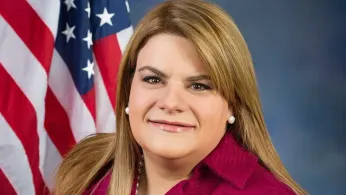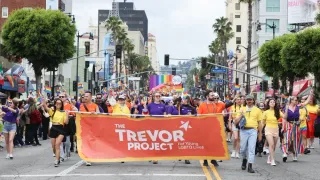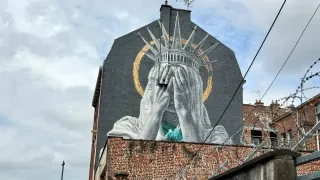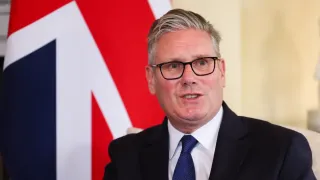
5 hours ago
Puerto Rico Enacts Sweeping Gender-Affirming Care Ban, Mandates Up to 15 Years' Imprisonment for Providers
READ TIME: 3 MIN.
Puerto Rican Governor Jenniffer González-Colón signed into law a sweeping ban on gender-affirming care for anyone under 21, marking one of the most stringent measures of its kind in any U.S. jurisdiction. The law, effective immediately, criminalizes the provision of hormone therapy and gender-affirming surgeries for transgender youth, carrying penalties of up to 15 years in prison, a $50,000 fine, and the revocation of all medical licenses and permits for those found in violation .
The newly enacted law covers all individuals under 21, a broader age range than seen in most similar legislation in the continental United States, where such bans typically apply only to minors. In addition to criminal penalties, the law prohibits the use of public funds for gender-affirming care. The legislative text justifies these restrictions by asserting that “minors, having not yet reached the necessary emotional, cognitive, and physical maturity, are particularly vulnerable to making decisions that can have irreversible consequences,” and claims a state duty to “ensure their comprehensive well-being” .
The law’s passage has been met with strong resistance from professional associations representing physicians, surgeons, psychologists, social workers, and lawyers across Puerto Rico, all of whom urged the governor to veto the bill. These groups argue that the law not only criminalizes medical professionals for providing evidence-based, internationally recognized care, but also strips young transgender people of access to vital health services .
Justin Jesús Santiago, director of Puerto Rico’s LGBTQ+ Federation, vowed immediate legal action, calling the new law “cruel and inhumane” and emphasizing that it targets health professionals for caring for transgender youth. “Let there be no doubt: We will go to court to challenge the constitutionality of the governor’s cruel and inhumane signing of a law that criminalizes health professionals for caring for trans minors,” Santiago stated Thursday .
Puerto Rico now joins a growing list of U.S. states with laws restricting or banning gender-affirming care for transgender youth, though the territory’s measure is notable for its severity and its application to individuals up to age 21. According to LGBTQ+ advocacy groups and national medical organizations, gender-affirming care for transgender youth—including puberty blockers, hormone therapy, and, in rare cases, surgery—is considered medically necessary and is supported by decades of research. These groups warn that bans such as Puerto Rico’s exacerbate mental health risks and can lead to increased rates of depression, anxiety, and suicide among transgender youth .
In anticipation of the law’s passage, organizations such as the American Civil Liberties Union (ACLU) of Puerto Rico and the Federación LGBTQ+ issued statements condemning the legislation and highlighting the support of every major medical association for gender-affirming care. “Banning this care and stripping the rights of parents to make the best medical decisions for their families would create unbearable burdens for the most marginalized in Puerto Rico,” the organizations declared in a joint statement .
Legal experts anticipate swift court challenges to the new law, setting the stage for a potentially lengthy legal battle over its constitutionality and compatibility with established medical standards. LGBTQ+ organizations and civil rights advocates have pledged to pursue all available legal avenues to overturn the ban and protect access to gender-affirming care for transgender youth in Puerto Rico.
Meanwhile, families, youth, and medical professionals across the island are left to navigate the immediate impact of the ban, with many expressing fear for the well-being and safety of transgender individuals denied medically necessary care. The outcome of these legal and societal battles will have far-reaching implications not only for Puerto Rico but for the broader struggle for LGBTQ+ rights and healthcare access in the region and beyond.






